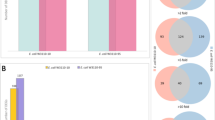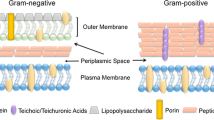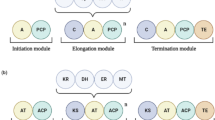Abstract
Recently we have reported that sub-minimum inhibitory concentrations (MICs) of macrolide antibiotics, such as erythromycin, clarithromycin, and azithromycin, induce loss of viability of Pseudomonas aeruginosa with longer incubation periods. In the present study we examined the effects of sub-MICs of macrolide antibiotics on protein synthesis and the expression of heat shock proteins (Gro-EL) in P. aeruginosa and the association of these factors with the viability of P. aeruginosa. In seven strains of P. aeruginosa clinical isolates, inhibition of protein synthesis was generally observed in bacteria grown on agar with sub-MIC azithromycin (8 μg/ml) at 24 h, and this was followed by loss of viability after an additional 24-h incubation. The inhibition of protein synthesis was shown in bacteria treated with sub-MICs of erythromycin and clarithromycin, but not with sub-MICs of other antibiotics examined (josamycin, tobramycin, ofloxacin, clindamycin, and ceftazidime) even at relatively high sub-MICs. In the heat shock condition (45°C), strong expression of the heat shock protein Gro-EL was induced in bacteria grown on antibiotic-free medium, whereas there was a delay of such a response in bacteria exposed to 4 μg/ml of azithromycin. Reflecting these results, an abrupt reduction of viability in azithromycin-treated bacteria was observed within 3 h in the heat shock condition. Western blot analysis, using specific antibody for Gro-EL, demonstrated that erythromycin, clarithromycin, and azithromycin, at concentrations of 0.5–2 μg/ml, inhibited the expression of lower-molecular weight Gro-EL bands in the constitutive state. These results indicated that macrolides, at concentrations far below the MICs, suppressed protein synthesis in P. aeruginosa, an effect which may be associated with the inhibition of P. aeruginosa virulence and its loss of viability with longer incubation. Moreover, it is likely that the macrolides may sensitize bacteria to stresses, as these antibiotics induced alterations in a major stress protein, Gro-EL, in constitutive and inducible states.
Similar content being viewed by others
Author information
Authors and Affiliations
Additional information
Received: September 13, 1999 / Accepted: December 7, 1999
About this article
Cite this article
Tateda, K., Ishii, Y., Matsumoto, T. et al. Potential of macrolide antibiotics to inhibit protein synthesis of Pseudomonas aeruginosa: suppression of virulence factors and stress response. J Infect Chemother 6, 1–7 (2000). https://doi.org/10.1007/s101560050042
Issue Date:
DOI: https://doi.org/10.1007/s101560050042




